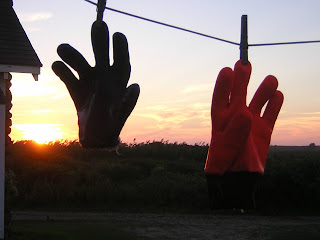
Fragment. No suggestions.
Did she say who sought refuge
in unhappy love
Day by day, we're moving into night
Slight accent, and the falling
"Leave a window open"
"Which of these is life? the true life?"
It's meant to be sad and bright, lit up
like the boat of the dead
I thought 2 hands would be 2 people.
--Kate Greenstreet
"Which of these is life? the true life" Paula Modersohn-Becker, The Letters and Journals
I'm re-reading case sensitive by Kate Greenstreet, or at least I'm re-reading it by skipping around and looking again at the poems in a kind of random way to see how they stand. At the same time I'm also reading a great book called The Unfolding of Language, which looks at the "invention" of language, though the author maintains that language wasn't actually invented but keeps happening and is always in process as it continues to change -- new words are added, tenses die out, cases disappear over time. I haven't exactly found the direct connection between the books. Maybe one will teach me about the other. Lately, it occurs to me that language works like human nature in that factors like survival, convenience, necessity, beauty, hunger,desire -- impact language's process the way they impact people and our interactions. The other thing on my mind as I read Greenstreet is story-making, story-telling. I guess I have been obsessed with narrative as a writer for a long time -- primarily because I'm no good at plot. It seems to me that stuff happens in a kind of fragmented way and later we make a story out of events to help us make sense of it all, to understand why we did certain things or behaved in a particular way. And then we turn to myth, to religion, to psychology, to art even. Or we make a mythology out of our lives so that we can believe there was a reason for the choices we made. Wasn't it Stanley Kunitz who said we should make a mythology of our lives?

